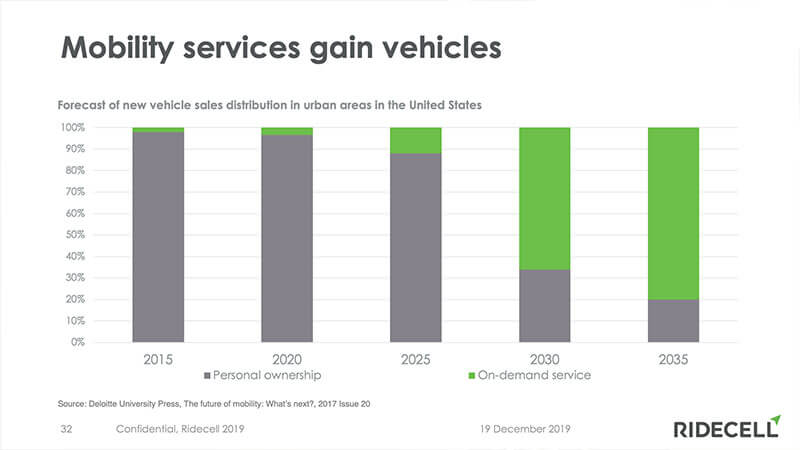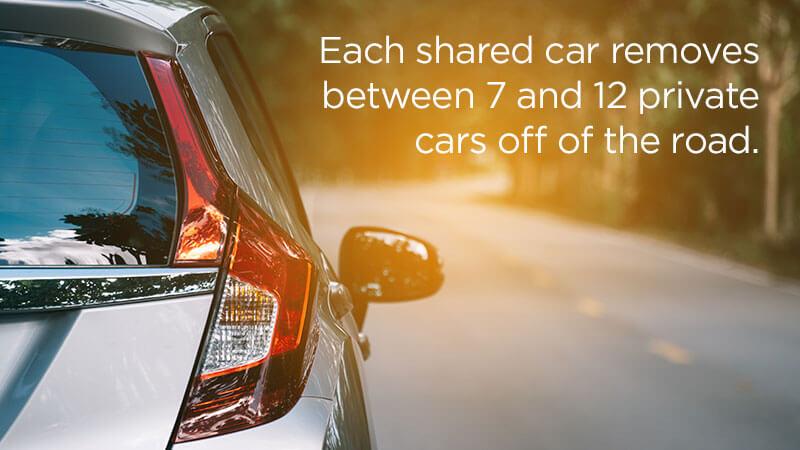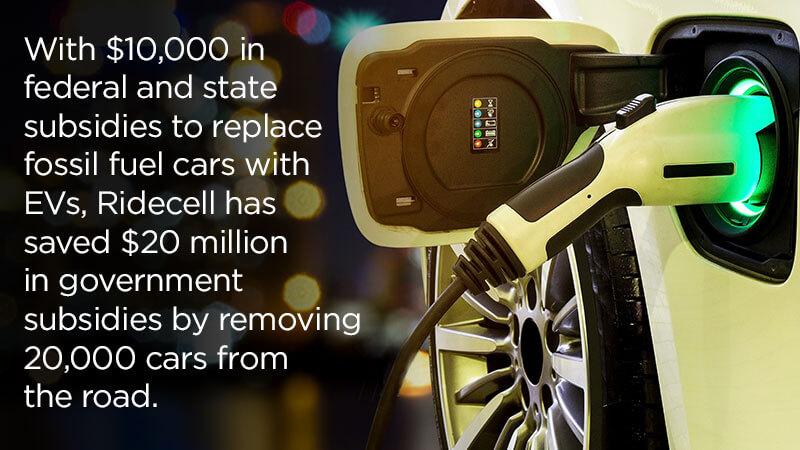
In an increasingly urbanized world, transportation is a major contributor of climate-damaging gases.
With cars and trucks collectively accounting for over one-fifth of all US emissions (and on the rise), there is no denying that we will need to change our transportation habits if we are to reverse this trend. At Ridecell, we provide a shared mobility platform with environmental awareness at the center of our innovation.
The statistics below show how Ridecell is working to ensure a sustainable future within a highly urbanized world. Although it is a surprising reality to some – shared mobility is the key to protecting our planet for generations to come. And at Ridecell, our goal is to move the world better.
Why shared mobility?
We believe that the growth and success of shared mobility is necessary to protect the planet from the effects of pollution. Fortunately, the world is on a path to adopting shared mobility and more environmentally friendly forms of transportation. A report from Deloitte University Press, The future of mobility: What’s next?, 2017 Issue 20 predicts that by 2030, only 32% of cars sold will be to private owners. The rest will go to mobility services.

This staggering increase in shared mobility will have a profound influence on fossil-fuel burning behavior in the future. Why? Because most shared fleets will be comprised of electric vehicles. Electric vehicles are considerably cheaper to operate in shared fleets and don’t have the disadvantage that privately-owned shared vehicles have, which is that a private EV needs to be charged where the owner lives, works or shops. The lack of significant charging infrastructure is slowing the adoption of EV’s as private vehicles. However, in a shared fleet, EVs are charged at central charging depots and don’t depend on chargers being where people are using the cars. With shared EV fleets, emissions from transportation will be significantly reduced. Shared vehicles also result in fewer urban vehicles, and will help alleviate parking challenges facing urban drivers.
Studies show that each shared car removes between 7 and 12 private cars off the road. People learn to depend on them to augment public transportation or to replace the little-used second vehicle.

Five steps ahead
According to UBS Group AG analysts, the global robo-taxi market might be worth more than $2 trillion a year by 2030. At Ridecell, we’re thinking multiple steps ahead about the best ways for companies to enter the shared mobility market today. The Ridecell platform supports carsharing, ridesharing and self-driving technology. We enable low-speed, self-driving, first and last-mile use cases to solve important issues associated with shared fleets including empty vehicle operations to have vehicles drive themselves to charging stations and reposition themselves to the most desirable positions for the next day’s carsharing customers.
With booming autonomous services and an ever-evolving technology stack, we’ve used our Auro autonomous vehicle technology to transport thousands of people safely and efficiently since 2016 in a university campus setting.
As transportation moves at an exponential rate towards autonomous vehicles, we are offering the technology and functionality needed to scale successful carsharing, ridesharing, and other cutting-edge micro-mobility services.
As a leading platform for EV carsharing and ridehailing, our vision is to power new mobility services that protect the future of our planet on a global scale. With offices across the world and an illustrious set of clients – including Renault, AAA, and Penske – we help mobility services thrive through our leading technology platform.
Did you know that cars are parked on average 96% of the time? Why are private car owners investing in a product that they are using 4% of the time?
In powering the world’s top brands in carsharing, we’ve removed nearly 20,000 cars from US roads already. With $10,000 in federal and state subsidies to remove fossil fuel cars with EVs, this has saved $20 million in government subsidies.

It’s undeniable that Ridecell has created something pretty special and we are excited about our technology that’s automating transportation flows from end to end—whether in a chauffeured ridesharing scenario today or in a self-driving service of tomorrow.
Author: Mark Thoms, VP of Marketing and Alliances, Ridecell


